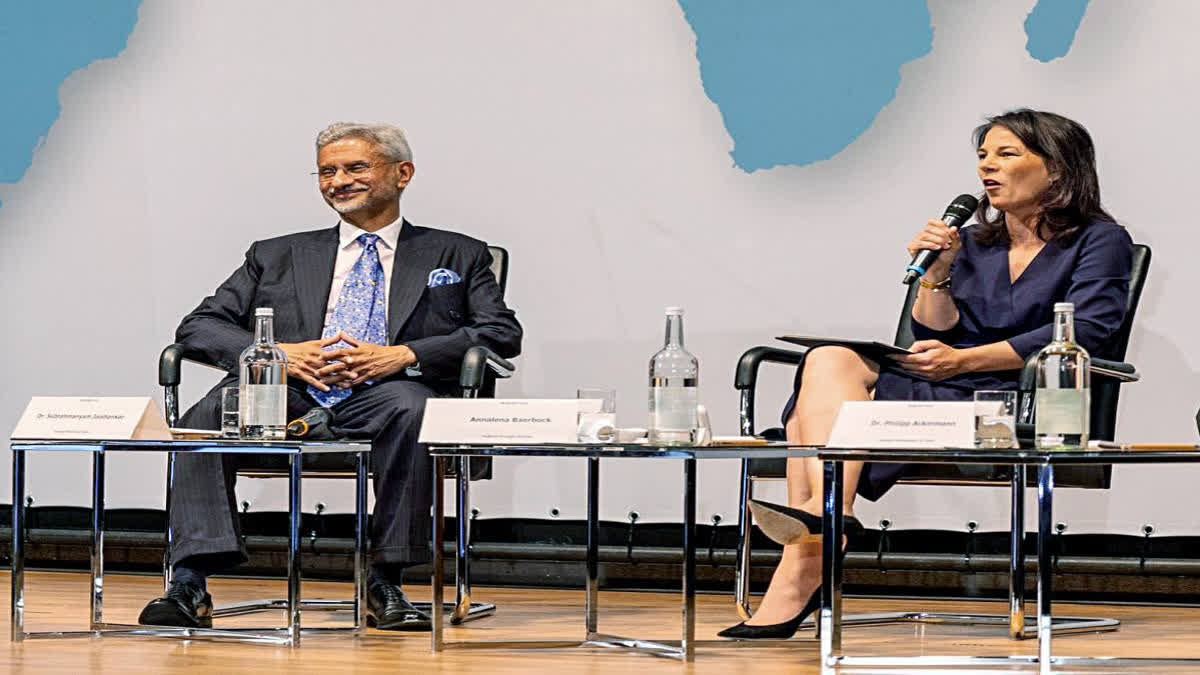New Delhi: Addressing the Annual Ambassadors’ Conference of the German Foreign Office in Berlin on Tuesday, External Affairs Minister S Jaishankar called upon Germany to relax its defence equipment export controls for India.
"Defence cooperation must be given greater thought, especially as the Indian private sector expands in that domain," Jaishnakar said.
"It will require export controls updating as well. We welcome the recent air exercises between India and Germany and await the impending ship visits to Goa."
Later, jointly addressing a media briefing with German Foreign Minister Annalena Baerbock, Jaishankar said that interactions in defence and security between India and Germany have also increased.
"And we would like to explore how our defence industries can cooperate more closely," he said.
Where does India-Germany cooperation stand as far as defence is concerned?
The defence cooperation between India and Germany dates back several decades, but it has gained significant momentum in recent years. Diplomatic relations were established in 1951, and both countries have since engaged in various defence dialogues and cooperative initiatives. The end of the Cold War and the rise of new security challenges prompted India and Germany to recalibrate their defence relationship.
India and Germany signed the Bilateral Defence Cooperation Agreement in September 2006. The Agreement on Mutual Protection of Classified Information signed in October 2007 provides the framework for bilateral defence ties.
To further enhance the defence industry and defence cooperation between Germany and India, the Arrangement on Implementation of the Agreement of 2006 concerning Bilateral Defence Cooperation was signed in February 2019 in Berlin.
High-level strategic dialogues between the defence ministries of both nations are held regularly to discuss global security challenges and bilateral cooperation.
In June last year, Defence Minister Rajnath Singh held a bilateral meeting with German Federal Minister of Defence Boris Pistorius in New Delhi. Both Ministers reviewed the ongoing bilateral defence cooperation activities and explored ways to enhance the collaboration, particularly defence industrial partnership.
Singh highlighted the opportunities that have opened up in the defence production sector, including the possibilities for German investments in the two defence industrial corridors in Uttar Pradesh and Tamil Nadu. The Indian defence industry could participate in the supply chains of the German defence industry and add value to the ecosystem, besides contributing to supply chain resilience.
Singh stressed that India and Germany could build a more symbiotic relationship based on shared goals and complementarity of strength, namely skilled workforce and competitive costs from India and high technologies and investment from Germany.
India and Germany have Strategic Partnership since 2000, which is being strengthened through inter-governmental consultations since 2011 at the level of heads of government.
Both India and Germany have engaged in joint training exercises, though these have been limited compared to other partnerships. However, the potential for future combined exercises, particularly naval and air force drills, is a focus area. Indian officers regularly participate in training courses and military exchange programmes in Germany, benefiting from Germany’s advanced military education and training infrastructure.
